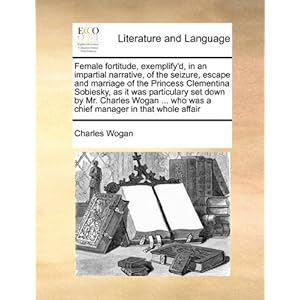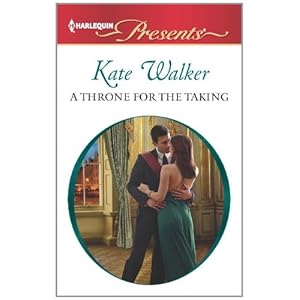There’s an important post over on the Pink Heart Society blog this morning. It’s by Michelle Styles and it talks about
tropes, archetypes and copyright. If you’re
at all interested in writing - and reading – I suggest you go and read it right
now.
Now I’m not just saying this is important because it has been provoked by something that
happened to me. That’s important right enough
- but this has more wide ranging
impact and is much more significant for
the writing world, for authors, unpublished writers, and anyone who is
interested in that world for any reason.
Some of you may know that an unpublished author recently
brought a case against me and Harlequin claiming that they had used her contest entry
to craft my award nominated novel The
Proud Wife. The unpublished author had submitted her 20 pages and synopsis into
many RWA sponsored contests and cited one where
she thought I had been one of the judges. In fact I had never heard of the contest and had never
judged it. The unpublished author felt so strongly that the works were similar,
citing 40 different points of
commonality that she took the case to court.
Earlier this month the federal judge dismissed the plaintiff’s claim with prejudice and without leave to
amend because there were no instances of
copyright violation. In other words, the judge did not have to decide if I had
accessed the unpublished author’s work through a contest entry because there
was no copyright violation in the first place.
All 40 elements cited belonged in the unprotected category, rather than
the protected category. In other words
they were part of the trope of romance and the similarities flowed from that.
If you want to know more about tropes in romance then read Michelle’s post. All I will add is that from time immemorial
writers have been reworking plots, telling the same stories in different way,
with a new slant, a new twist. Prior to
the 18th century, writers borrowed freely from each other without shame or
punishment. (The Latin word plagaria referred only to the act of physical
kidnapping.) Shakespeare borrowed passages from Plutarch and contemporaries.
Books were copied by hand prior to the rise of the printing press, and
amanuenses were given liberty to rework texts. England passed the first
copyright laws in 1709, as mechanical reproduction of works and new ideas about
individuality became widespread. These laws provided legal remedies for
authors--writers and composers mainly--who believed their works had been
unfairly lifted. The U.S. Constitution required Congress to pass similar
copyright laws.
Plagiarism is abhorrent to me -
totally wrong – but plagiarism is reproducing verbatim without the author's prior
consent. Plagiarism is lifting another person’s words, copying their
story, adding nothing new or different and above all never acknowledging the
debt to the original. What romance
writer has never written her personal version of Cinderella, Sleeping
Beauty, The Taming of The Shrew, Pride
and Prejudice . . . Even if she hasn’t followed the path of the
original story, the memories of it, the themes
and plot lines are there in our collective story-telling imaginations
and they will come out to a greater or lesser degree in each story we
tell. If I meet any writer of romantic fiction who tells me that
she had never ever touched on any of the
classics then I’m unlikely to believe
her. Where do the wonderful alpha heroes
we all know and love (or hate as the
case may be) come from if not from these classic stories?
All fiction is full of echoes and reflections that writers
play with their predecessors. The Russian critic Vladimir Propp has even proposed that all stories could be made up of one of seven archetypes, that
cover the whole of fiction for all time. No matter what amazingly unique idea
you might come up with for your new novel, chances are it's already been used
hundreds, possibly even thousands, of times before. You can’t copyright an
idea. You can’t copyright tall, dark handsome
heroes. Or beautiful heroines - whatever
their colouring. You can’t copyright the weather on a day a scene takes
place. You can’t copyright a book about
a miscarriage – miscarriages aren’t copyrightable. I should know, I’ve suffered
one and so, sadly, have many of my friends.
Since I wrote The Proud Wife I have read a dozen or more novels with very
similar themes – some series romance, some
bigger ‘single title’ books. None
of them stole anything from me. They
might or might not have read The Proud Wife – it doesn’t matter. The themes, the
tropes of this book are archetypes of romantic
fiction. Each time a story is retold it is worked into a different form , with
different characters, a different setting,
different touches that take a
classic trope/archetypal characters and
turn them into something fresh.
I’ve written 60 published novels in the nearly 30 years I’ve been writing. My 61st A Throne For The Taking will be published in
June. I don’t need anyone else’s stories to keep me writing – I have enough
trouble with the ideas and the characters who are buzzing in my head demanding
that I find time to write them down.
But there is one other side of
this case that truly saddens me and that is the effect that this case has had
on so many, many fellow authors. And as a consequence, will have on many as yet unpublished writers working hard to learn their craf and looking for help and advice along the way.
One of the things I have always loved about the world of
romance writers is the way that so many of them – of us, because I include
myself in this group - have been only
too willing, totally happy, to help unpublished writers on their way towards
to goal of being published. For years, published
authors have judged contests run by the RWA and other organisations. We
have read and critiqued scripts for new writers – writers who often send
scripts unsolicited, asking for help. We
have offered our professional expertise to help both new writers and important charities
like Brenda Novak’s annual Auction
to raise money for research to
look for a cure for diabetes.
Not any more.
Because this generosity is what this case has damaged. So badly.
I have had so many messages from fellow writers who would have donated a
reading/critique as a lot in this
valuable auction or who would have volunteered to judge a contest to help
unpublished authors – but after this, not any more.
And this is why the article on the PHS is important.
Because if people don’t understand what
is copyrightable and what isn't and what plagiarism really is
then this can happen again and other authors can be put through this
with no justification.
So please read Michelle’s post and
learn more about these things –
and if you are interested, you can read the full 18 page judgement here
The analysis starts on page 9 and runs to
page 17.


























